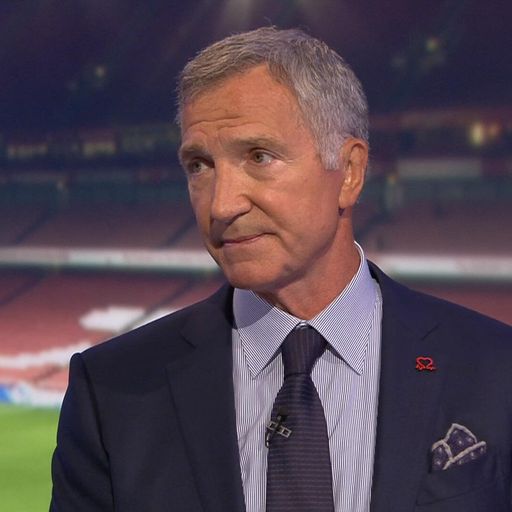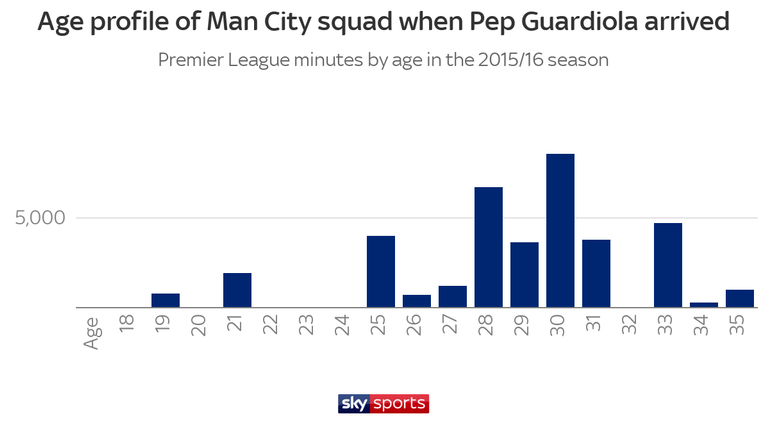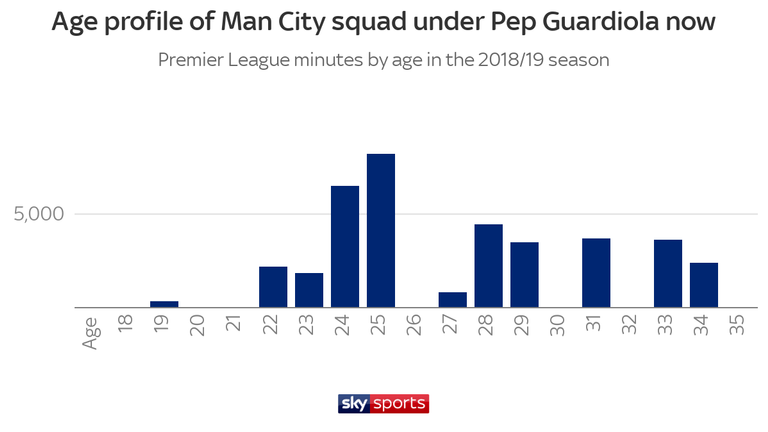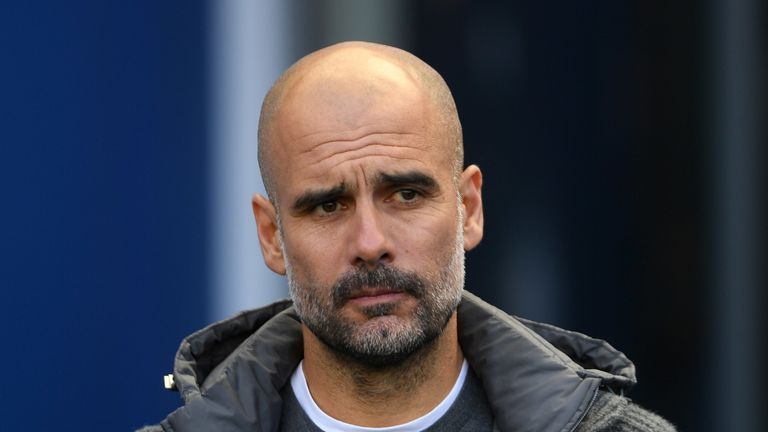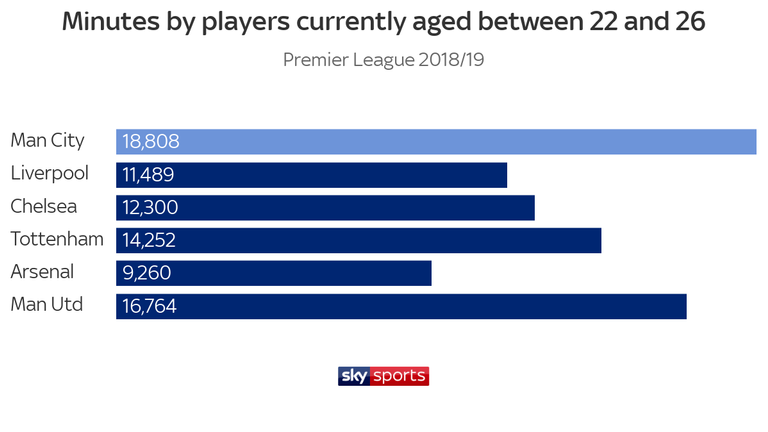Manchester City's age profile makes Premier League domination likely
Rodri signing just part of the transition process at Manchester City
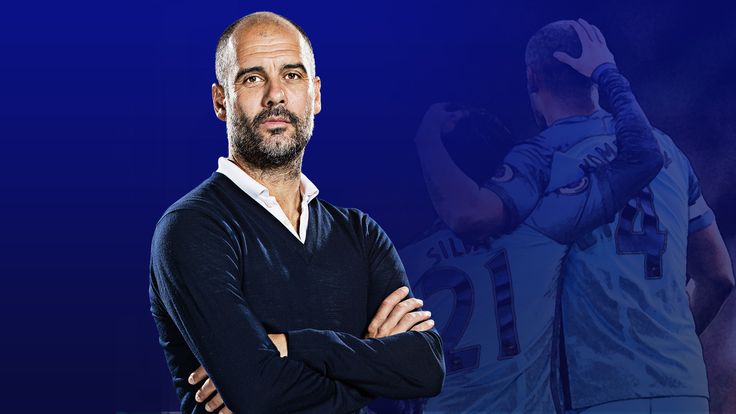
Friday 5 July 2019 14:01, UK
Manchester City are losing some iconic players but they are better placed than ever to dominate the Premier League now that so many of the squad are approaching their peak years. Adam Bate looks at how Pep Guardiola has transformed the age profile of his squad and why that's a problem for everyone else...
The announcement that this will be David Silva's final season as a Manchester City player comes soon after Vincent Kompany's departure. Losing legendary figures who would walk into the club's greatest all-time line-up is bound to have an impact but there is optimism that Manchester City can manage that transition better than the great sides of the past.
It is not just a matter of money, it is a matter of management. Liverpool's era of dominance in the 1980s came to an end because too many players were allowed to grow old together.
Get a Sky Sports Day Pass for one-off payment of £8.99
Graeme Souness returned as manager to find Bruce Grobbelaar, Steven Nicol, Jan Molby, Steve McMahon, Ronnie Whelan, Ray Houghton, John Barnes, Peter Beardsley, Ian Rush and John Barnes all past their best. Even some of the squad players were the wrong side of 30.
An overhaul was needed - and Souness spent big by the standards of the time - but the danger of doing it all in one go proved even greater than the risk of letting them stay. "My biggest crime was trying to make the changes too quickly," Souness told Sky Sports last year.
The same could be said of Manchester United's decline when David Moyes allowed Rio Ferdinand, Nemanja Vidic and Patrice Evra to depart within weeks of each other in the summer of 2014. United had money but they underestimated the size of the void.
Will Manchester City, the first back-to-back Premier League title winners for a decade, be able to maintain their success through a similar period of transition? The good news is that the process is well underway with the signing of Rodri, surely the long-term replacement for Fernandinho, just the latest example. The age profile of the squad has already changed.
When Pep Guardiola arrived, for all the funding available, he inherited a tricky situation. Eleven of the 22 players to start a Premier League for City in the previous season were over 30. A further five were already 28 and another, Kelechi Iheanacho, was still a teenager.
To underline the scale of the rebuilding job, the only players in the City squad aged between 22 and 27 - regarded as the peak years for most outfield players - were Kevin De Bruyne, Fabian Delph, Eliaquim Mangala and Wilfried Bony. It was not the ideal starting point from which to deliver unprecedented success in the short term.
The transformation has cost money, of course, but the crucial thing is that it has happened and it has been relatively seamless. Of the nine players to feature 30 times or more for City last season, the majority are aged between 23 and 25. Add John Stones, Benjamin Mendy and Gabriel Jesus to that core group and it's a squad with stars entering their peak years.
The significance of having so many players at the peak of their powers can hardly be overstated. In fact, is it one of the most underestimated aspects of a team's success.
While the correlation between financial resources and team performance is obvious, the impact of having a squad loaded with too many younger players or too many older players can sometimes be missed - even when it results in a club performing below expectations.
Look through Premier League history and the importance of having players at their peak could hardly be clearer. There were many aspects to Leicester's incredible title win but the age of their starting line-up was arguably one of the untold tales of their success. The youngest regular starter was 24 and the oldest was 31. These were players in their prime.
The majority of United's treble-winning line-up were aged between 22 and 27 and the same is true of Arsenal's Invincibles. Remarkably, as many as 12 of the 13 players to feature regularly for Chelsea in their record-breaking 2004/05 season were in that age bracket too. Remember, that's the bracket that was all but vacant when Guardiola arrived at City.
Some clubs have sought to cheat the system over the years. Bolton were able to bring in players of higher quality by signing ageing players under Sam Allardyce. Southampton overachieved for some time by trusting in young talent. But at the top end of the table, having a squad at their peak is pretty much non-negotiable if you want to win trophies.
Manchester City have that now. While much has been made of Silva identifying Phil Foden as his natural heir, the more important point is that the teenager will not be expected to take up the pivotal role that the Spaniard once held in the team. City's win percentage was identical with and without Silva last season. Bernardo Silva, 24, is one of the leaders now.
Kompany played an important role during the run-in, but there is no doubt that the 25-year-old Aymeric Laporte was the first-choice defender and there is still hope that Stones can step up. City have already transitioned away from the ageing full-backs Guardiola inherited.
Sergio Aguero's long-term replacement might still need to be found, although Jesus remains one of the best prospects in world football. The key is that the core of this City side - those taking the most minutes and driving them to new heights - are now at an age to sustain success. The most difficult thing in management - change management - is being achieved.
"Next season we will be stronger, I am sure," said Guardiola himself in the aftermath of Manchester City's domestic treble. "We will be stronger. We will be better." It is a proclamation that should worry their rivals in the Premier League and beyond. Because having reshaped this Manchester City squad, there is no logical reason to doubt him.
If you're reading on skysports.com comment below to get involved in the debate, but please adhere to our House Rules. If you wish to report any comment, simply click on the down arrow next to the offending comment and click 'Report'.

